Following this development, Mr Musah entreated the young people in the country to recognize, expose and resist the deceptive tactics used by the tobacco industry and its allies to recruit new, younger customers—at the eventual cost of millions of lives lost.
The tobacco industry needs young people to buy their products, which may result in nicotine addiction, so that they become long-term consumers. This creates the opportunity to replace the 8 million people worldwide who die of tobacco-related causes every year. It is a matter of profits over people—an indefensible choice."
the users of tobacco products in Ghana, Mr Musah stressed that it is a high time for the schools to refuse any form of sponsorship and prohibit representatives of the tobacco and nicotine companies from engaging with students, saying that the study has showed thar there is a high prevalence of shisha or e-cigarette use among university students in Ghana.
He noted that looking at the increasing deaths associated with the use of tobacco products in Ghana, it is important for the government of Ghana to take steps by way of implementing WHO Framework Convention on Tobacco Control (FCTC) which provides comprehensive guidance to reduce tobacco consumption and save lives.
He urged everyone to become educated, raise awareness and help create a tobacco-free generation, emphasing that “We each have a critical role to play.”
"We are saying that the social media platforms should ban all forms of marketing of tobacco and related products. Governments and the financial sector should divest from tobacco and related industries," Mr Musah stressed.
Data released VALD Ghana and Civil Society Organisations (CSOs) indicate that tobacco use in any form leads to mortality and morbidity of millions of people every year, not only tobacco users but also non-users by inhaling secondhand tobacco smoke.
He pointed out that smoking prevalence in the African region remains the lowest among all WHO regions (5-10%) Progress in the African continent has been slow with modest achievement Region experiencing some of the highest rate of increase in the number of tobacco users.
According to him,WHO African Region accounts for 18.2% of the global area under tobacco cultivation and 11.4% of tobacco leaf growing in the world.
He mentioned that Ghana passed a tobacco control law call the Tobacco Control Measure within the Public Health Act (Act 851) in 2012 and subsequently passed the TC regulations in 2017.
Articulating on the key provisions, Mr Musah noted that the ban on smoking in public places, ban sale to and by minors, ban advertisement, introduced health warnings on tobacco packages etc, adding the tobacco kills 6300 people in Ghana today.
Indeed, the greatest threat to advancing public health and protecting young people from harm is industry interferences–particularly the tobacco industry and other health harming products ie alcohol and SSBs.
"Today, we have gathered here to identify some key strategy, tactics and activities undertaking by the tobacco industry and their allied organization aimed to delay, divert attention and to stop the passage of the Act especially during the passage and implementation of the Excise Duty Amendment Act. Not taking cognizance of that fact that the Act is essential for safeguarding public health and the integrity of our tax system," Mr Musah noted.
He said that the Act 1093 was faced with multiple degree of interference notably from the tobacco, alcohol and SSBs industry.
According to him, they brought forth old industry arguments they have made for year just to gain public support, adding that the government is overburdening the people with taxes
He stressed that the taxes will lead to illicit trade in tobacco products.
He was of the view that the taxes will increase unemployment rate, saying that the government is insensitive to businesses..
He stressed the arguments for excise taxes have been well established with evidence to show that excise taxes defy all the arguments made by industry.
He added that the Excise Taxes are taxes levied on health harming products such as tobacco, alcohol, SSBs, transfat products etc, saying that they are are referred to as corrective taxes or health taxes or health promotional taxes.
In effect he emphasized that these excise taxes are important for public health; Reduces exposure and accessibility to children who are the target of the TI Improves health and wellbeing of all Sustainable revenue stream to government to finance social and development project when earmarked.
"It reduces poverty – smokers are able to invest their money into productive ventures
– even those addicted will reduce the number of sticks- research indicates that smokers from low- and middle-income countries spend on average 4-5% of their household income on tobacco use.
"It is important to emphasize the point that the Global Treaty WHO FCTC Article 5.3. has important provisions that seeks to protect public health policies from industry interferences," he said.
He noted that it is on this basis that many countries are CSOs like VALD Ghana is trying to ensure that it safeguards tobacco control policies from industry interferences-
This, according to hi includes research that identifies interferences in other to as much as we can expose them and make recommendations to government.
To understand the extent/degree of the tobacco industry interferences during the process that led to the passage, he said the VALD Ghana commissioned a rapid report, meticulously prepared, to expose the tactics used by the tobacco industry in an attempt to undermine passage of the Excise Taxes.
He asserted that this this report not only sheds light on the industry's strategies but also highlights past instances, both locally and globally, where the industry has sought to interfere with tobacco control laws.
"Today, we proudly present this finalized report, and our intention is to engage the media through a press conference, amplifying our message to a wider audience.
"Furthermore, we are committed to disseminating this report to government officials, including the Ministry of Finance, Ghana Revenue Authority, Ministry of Health, and the legislature, as well as the general public. Our goal is to raise awareness and counter the industry's efforts to undermine tobacco control.
"In addition to this, we will be launching social media campaigns and organizing engagement sessions with civil society organizations in partnership with news networks to ensure that the public becomes aware of the industry's tactics that could potentially hinder our public health efforts.
One of the key objectives of this event is to educate and shape the government and public's understanding of the WHO FCTC Art. 5.3, and to seek their support in exposing industry interference.
"We are creating an avenue for all of you to report any attempts by the health harming industry to interfere in public health policies, and together, we can ensure that public health remains a top priority.
He commend the Member of Parliament (MP) for Ningo-Prampram Constituency in the Greater Accra Region, Mr Sam George for adding his voice to the closure of the renal center at Okomfo Anokye Teaching Hospital.
"We find his statement on the matter very relevant to today’s meeting.
The law maker expressed disappointment on the use of tobacco products especially shisha among the youth. He also expressed shock in the number of alcohol products 100 alcohol beverages. He effectively links the increase in chronic condition to these products.
"While commending him, the questions us where was the law maker when the excise duty amendment act was in parliament. We all saw the drummer– where some MPs vehemently oppose the excise taxes which sought to increase taxes on these unhealthy products – tobacco, alcohol, and sugar products.
"I don’t want to say those who opposed the excise tax where oblivious of the health benefits- which includes – reducing to a large extent non communicable diseases – (cancers, diabetes, stroke, respiratory, kidney, heart, lung diseases etc).
"We are appreciating the MPs, CSOs like VALD Ghana, the media who gave us platforms, Ghana Revenue Authority, Food and Drugs Authority, Ministry of Finance etc who stood by the campaign to increase taxes on tobacco alcohol and SSBs.
"Thankfully the Excise Tax got passed on 31st March 2023 despite industry efforts to derail the passage," he noted.
Mr Musah further called on the government to investigate what led to the closure of the Renal center.
"We are aware key among the issue is finance- We are told by GRA that the excise tax is progressively increasing government revenue – Many countries have earmarked excise taxes to support health promotion or health related challenges.
"We have over the year call on the MoF and Parliament to legislate so we earmark some percentage of the excise taxes to support the health care. The out-of-pocket payment is just unbearable for many Ghanaians especially the poor,' he stated.
He acknowledged the collaborative efforts between VALD-Ghana and key civil society organizations, the FDA, GRA, MoH, GHS, the, Tobacco Tax Advocacy Network for Health Promotion, CSOs Budget Forum, and many others who supported who continue to support our advocacy.
He stated that there is a irreconcilable conflict of interest between tobacco industry objectives, motives and public health, saying that they are for profits and nothing else.
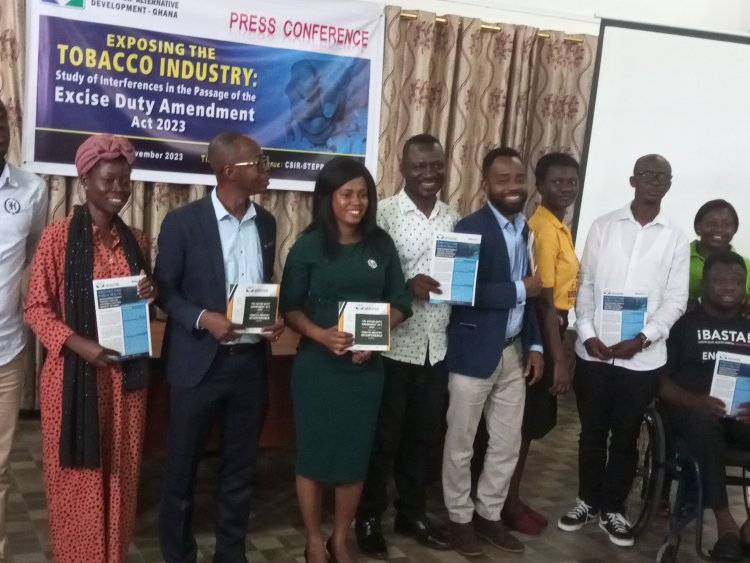
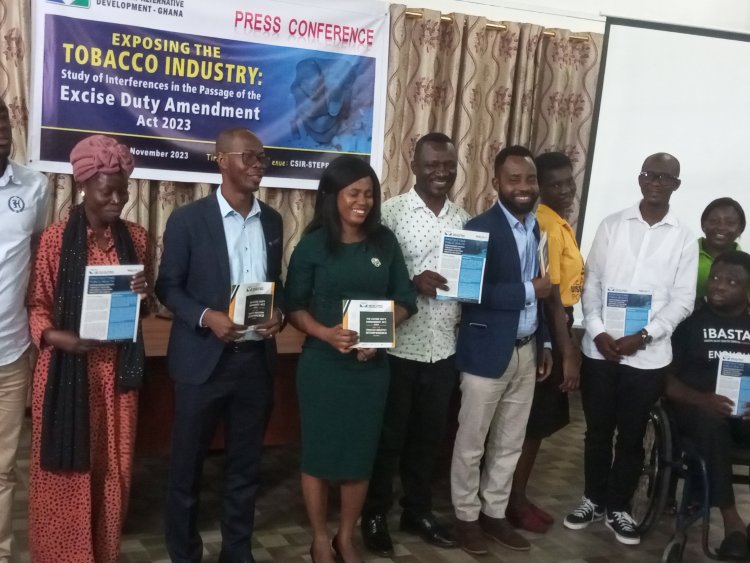
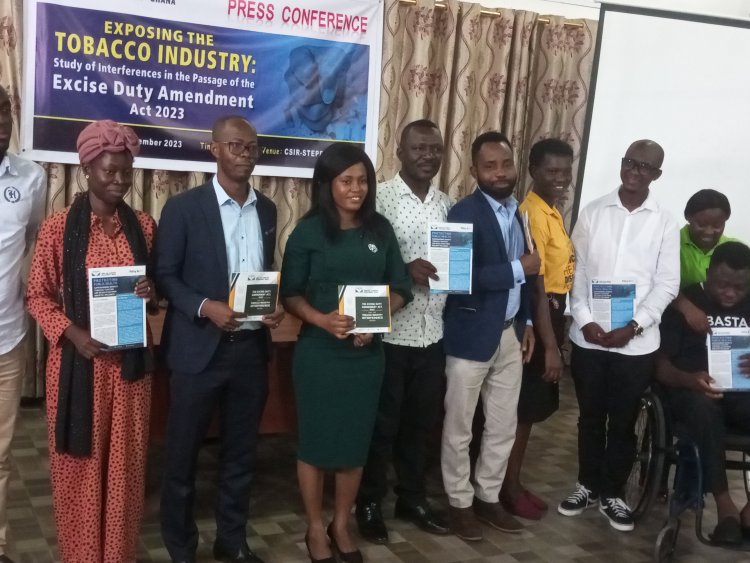
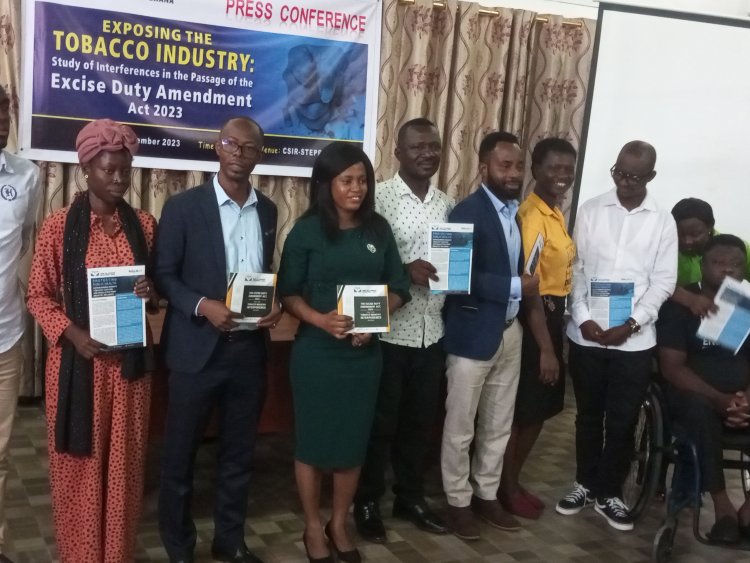
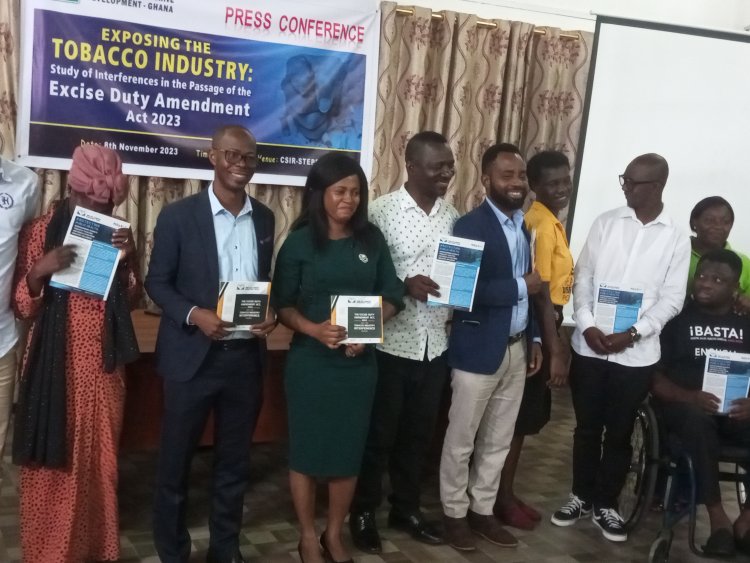

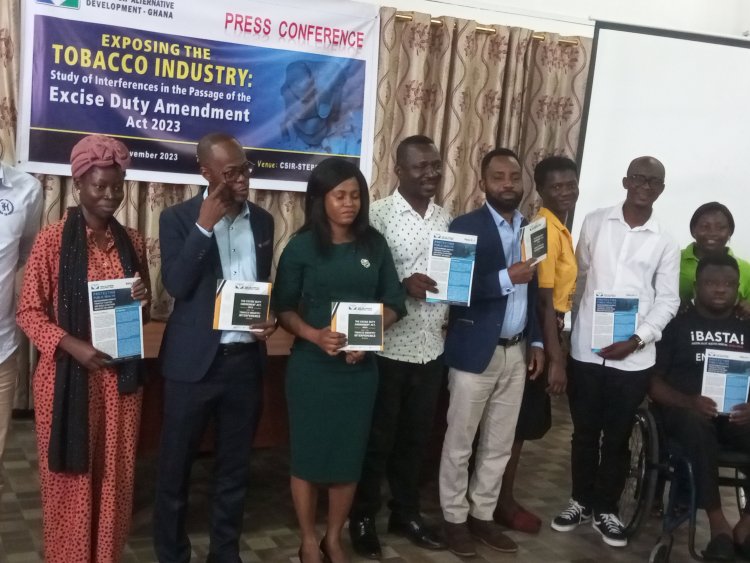
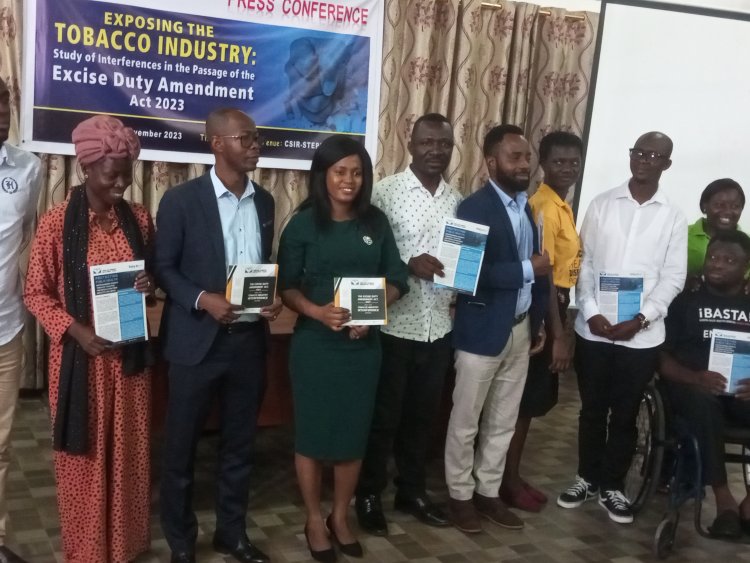

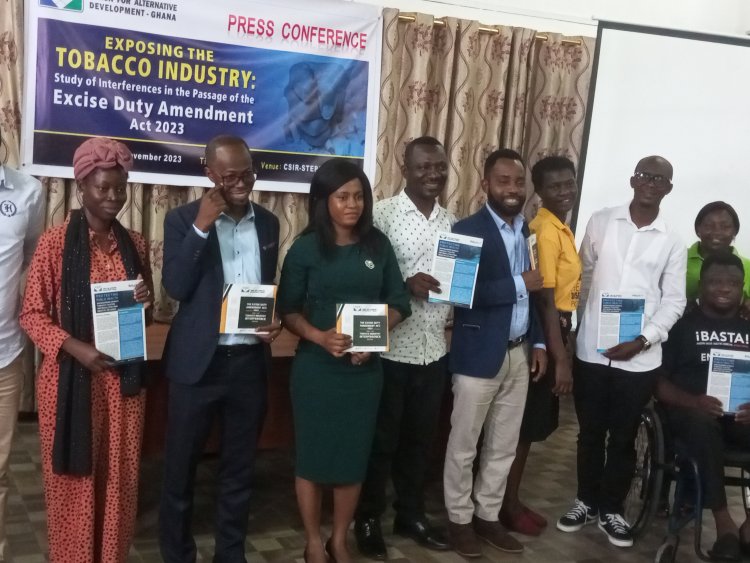

 Freeman Koryekpor
Freeman Koryekpor 


































